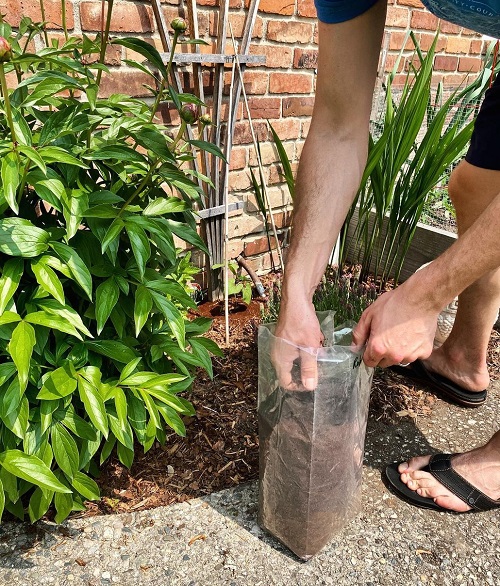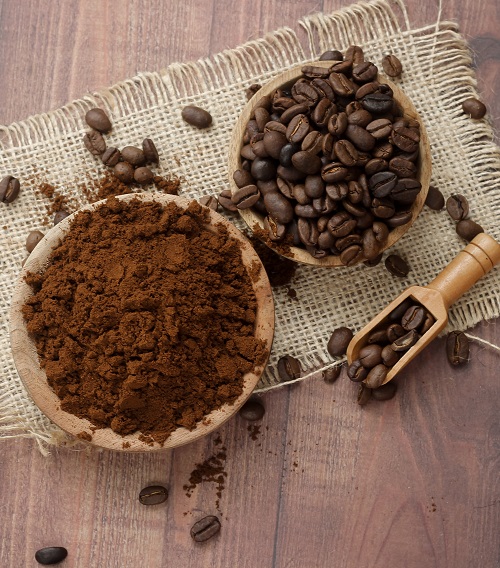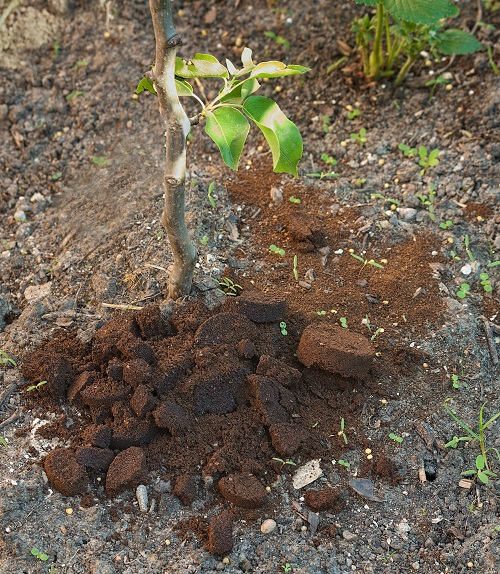Will Coffee Grounds Kill Weeds? If you are not sure about how to proceed, then this article will guide you into doing it correctly!
Weeds can be a persistent nuisance in gardens and lawns, often competing with desired plants for nutrients and space. While there are numerous methods available to tackle weed growth, one intriguing option that has gained popularity is the use of coffee grounds. So, Will Coffee Grounds Kill Weeds? Time to find out!
Find Which Plants Like and Do Not Like Coffee Grounds here
What are Coffee Grounds and Their Role in Gardening
Coffee grounds are the remnants of brewed coffee after the water has passed through the coffee beans. They are often recommended as a natural and organic amendment for gardening purposes.
- Nutrient Source: They contain several nutrients that can benefit plants, including nitrogen, potassium, phosphorus, calcium, and magnesium. These nutrients are released slowly as the coffee grounds decompose, providing a gradual source of nutrition for plants.
- Organic Matter: Coffee grounds are considered a form of organic matter, which helps improve soil structure, moisture retention, and microbial activity. When added to the soil, coffee grounds can contribute to overall soil fertility and health.
- pH Adjustment: They have a slightly acidic pH, which can be beneficial for plants that prefer acidic soil conditions. Acid-loving plants like azaleas, rhododendrons, blueberries, and hydrangeas can benefit from the acidifying effect of coffee grounds when used in moderation.
- Pest Repellent: Coffee grounds have been reported to deter certain garden pests. Some studies suggest that coffee grounds can help repel slugs, snails, ants, and cats. However, the effectiveness may vary depending on the specific pests and circumstances.
- Composting: They are a valuable addition to compost piles. They are considered a “green” or nitrogen-rich material that helps balance the carbon-to-nitrogen ratio in compost. When mixed with “brown” materials like dried leaves or straw, coffee grounds can accelerate the decomposition process and contribute to nutrient-rich compost.
Read about 10 Houseplants that Love Coffee here
Will Coffee Grounds Kill Weeds?

Coffee grounds can potentially help in suppressing weeds, but they are not a guaranteed or sole solution for weed control. Here’s how coffee grounds can assist in weed management:
- Physical Barrier: When coffee grounds are spread around plants, they can create a physical barrier that inhibits weed seed germination and growth. This barrier can help smother small weed seedlings, making it difficult for them to emerge through the coffee grounds.
- Nutrient Imbalance: Coffee grounds contain high amounts of nitrogen, which, when applied in excessive quantities, can create an unfavorable growing environment for some weed species. Nitrogen-rich soil can promote rapid growth and competition from desirable plants, reducing the space and resources available for weeds.
- pH Effect: Coffee grounds are slightly acidic, and some weeds prefer neutral to alkaline soil conditions. The acidifying effect of coffee grounds may create conditions that are less favorable for certain weed species, potentially inhibiting their growth.
It’s important to note that the weed-suppressing effects of coffee grounds may vary depending on the weed species, soil conditions, and other factors. Coffee grounds alone may not be sufficient to completely control or eliminate weeds, especially established perennial weeds with deep roots.
Best Ways to Use Coffee Grounds to Kill Weeds
For best results in weed control, consider the following:
- Apply coffee grounds as a mulch layer around desirable plants to help inhibit weed growth.
- Combine coffee grounds with other organic mulch materials, such as wood chips or straw, for more effective weed suppression.
- Regularly monitor and manually remove weeds to prevent them from becoming established.
- Maintain a healthy and dense plant cover to compete with weeds for resources.
Remember that coffee grounds should be used in moderation and not in excessive amounts. It’s advisable to mix them with other organic materials and avoid creating a thick layer that can impede water and air movement in the soil.



